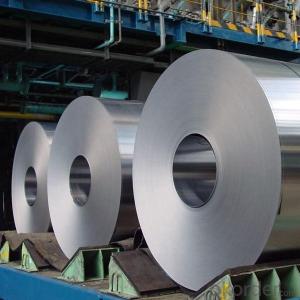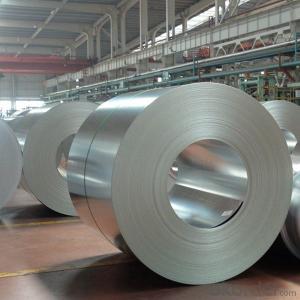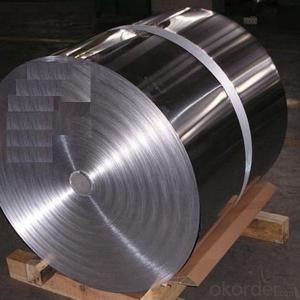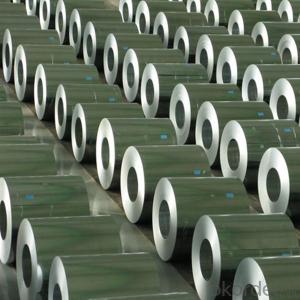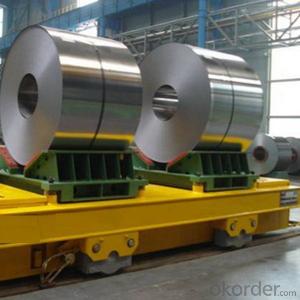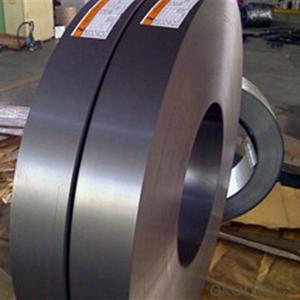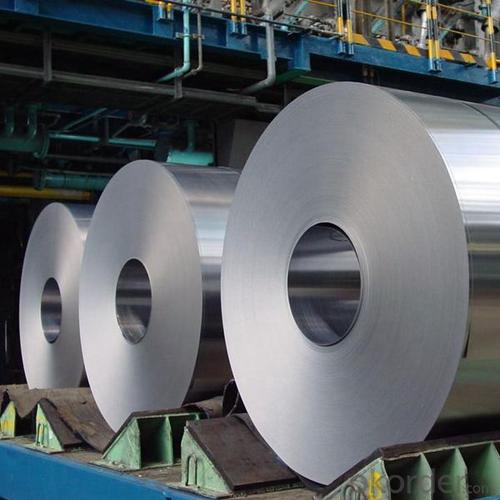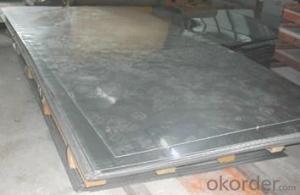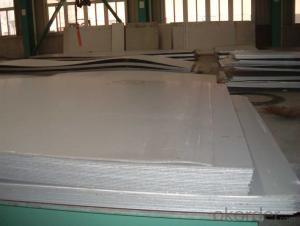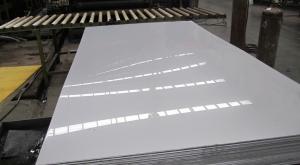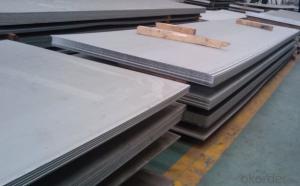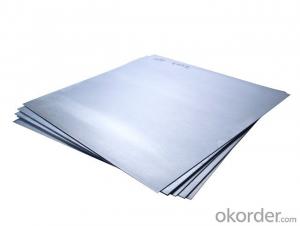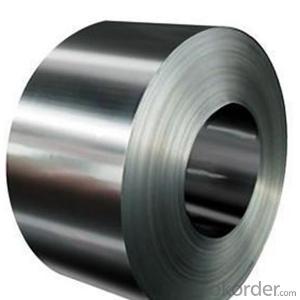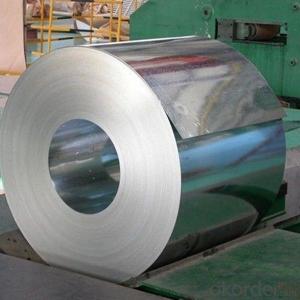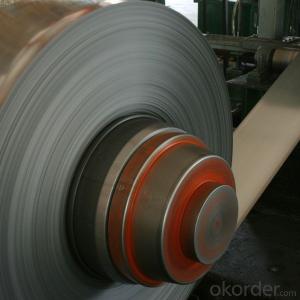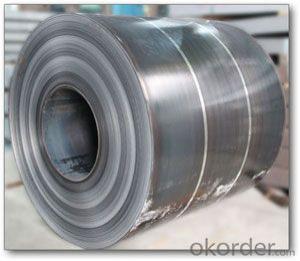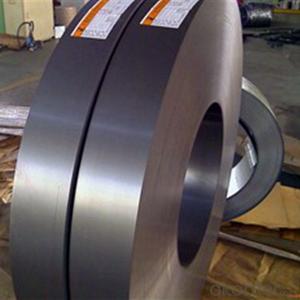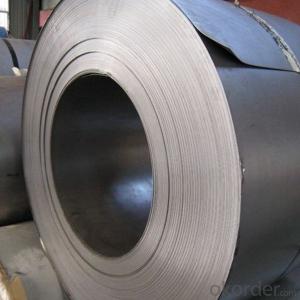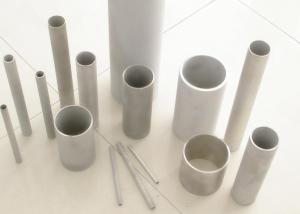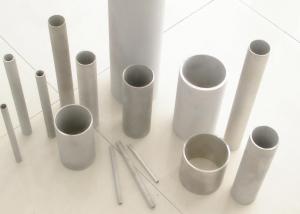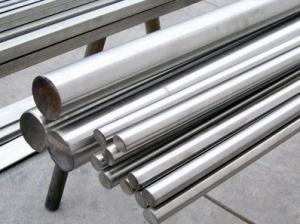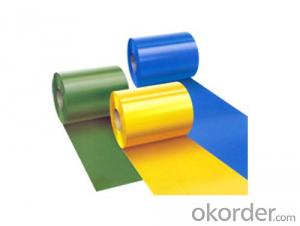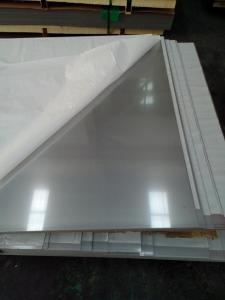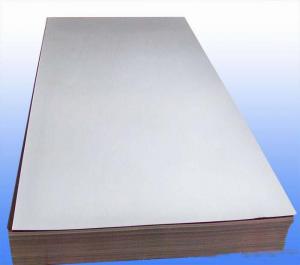Hot Rolled Stainless Steel Coils No.1 Finish Made In China
- Loading Port:
- Tianjin
- Payment Terms:
- TT OR LC
- Min Order Qty:
- 100 m.t.
- Supply Capability:
- 20000 m.t./month
OKorder Service Pledge
OKorder Financial Service
You Might Also Like
Specification
Products Description for Stainless Steel Coils/Sheets:
ITEM | DESCRIPTION |
Commodity | Stainless Steel Coil |
Material | 201, 202, 301, 321, 304, 304L, 316, 316L, 309S, 310S, 410, 430, etc. |
Surface | 2B, BA, 8K, No. 4 No.1 |
Standard | AISI, ASTM, DIN, EN, GB, JIS, etc. |
Specification | 1. Thickness : 0.3mm -120mm |
Application | 1. Automotive: Automotive trim and molding/Difficult-to-form exhaust-system |
Process | Hot rolled / cold rolled |
Payment | L/C,T/T |
MOQ | 20 Ton |
Productivity | 700 tons per month. |
Package | Standard seaworthy export packing or according to the customers' request. |
Delivery Time | It is based on the order, normally within 30 days after receiving your advance payment. |
Note | We can produce other standard as the customers' requirement. |
Features of Stainless Steel Coils
(1)Good ductility
(2)Good corrosion resistance
(3)Excellent abrasion resistance and fatigue strength
(4)Good weldability
(5)Oxidation resistant performance
(6)Excellent in high temperature
Packaging & Delivery for Stainless Steel Coils/Sheets:
Packaging Detail Standard export packing or following customer's demand
Delivery Time: Within 30-40 days after deposit or according to the order quantity
Detail picture for Stainless Steel Coils/Sheets
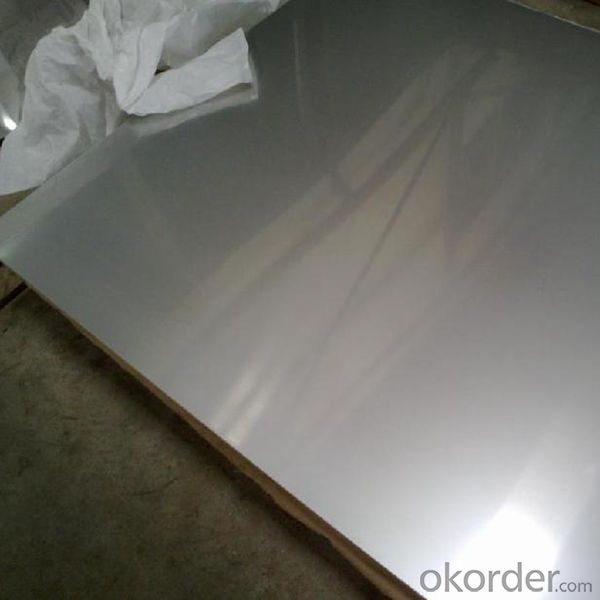
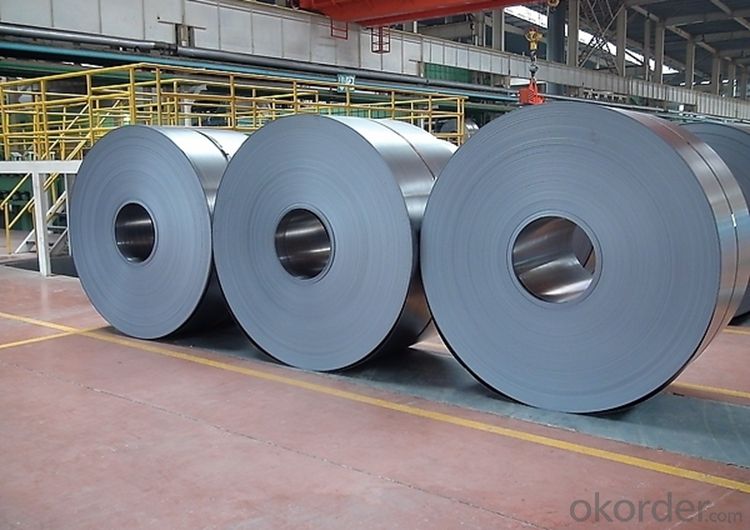
Application for Stainless Steel Coils/Sheets:
Boiler heat exchanger, machinery andpetroleum ,chemical industries, hardware fields,Food industry,construction material,kitchen utensils, building construction, medical equipment,chemical tank, pipe etc
FAQ for Stainless Steel Coils/Sheets:
Q:How to order?
A: Please send us your purchase order by email or fax .or you can ask us to send you a proforma invoice for your order .We need to know the following information for your order.
1) Shipping information-company name, street address, phone number, fax number, destination sea port
2) Product information – Quantity, Specification (steel type, thickness, width, surface finish)
3) Delivery time required
4) Forwarder's contact details if there's any in China
FAQ for Stainless Steel Coils/Sheets:
Q:What are the advantages of your company ?
A: We have many professionals, technical personnel, more competitive prices and best after-dales service than other stainless steel companies.
Q:Can you arrange the shipment ?
A: Sure we can help you with the shipment. We have forwarders who have cooperated with us for many years.
- Q: What is the maximum temperature that stainless steel sheets can withstand?
- The grade of stainless steel used determines the maximum temperature that stainless steel sheets can endure. Typically, stainless steel is recognized for its exceptional resistance to heat and can endure temperatures between 1200°F and 1600°F (650°C and 870°C). Nevertheless, the precise temperature limit can differ based on the grade of stainless steel, the sheet's thickness, and the duration of exposure to elevated temperatures. To ascertain the maximum temperature tolerance for a particular stainless steel sheet, it is crucial to refer to the manufacturer's specifications or consult a materials engineer.
- Q: What is the standard size of a stainless steel sheet?
- The standard size of a stainless steel sheet can vary depending on the manufacturer and the specific application. However, common standard sizes for stainless steel sheets include 4 feet by 8 feet, 5 feet by 10 feet, and 4 feet by 10 feet.
- Q: Can stainless steel sheets be used in food processing or medical applications?
- Yes, stainless steel sheets can be used in food processing and medical applications. Stainless steel is a popular choice for such industries due to its excellent corrosion resistance, durability, and easy cleaning properties. It is resistant to chemical reactions, making it safe for contact with food and medical equipment. Stainless steel sheets are commonly used in food processing equipment, storage tanks, countertops, and surgical instruments. They meet the stringent hygiene standards required in the food and medical industries, making them a reliable and suitable material for such applications.
- Q: Can stainless steel sheets be used for desalination plants?
- Certainly, desalination plants can utilize stainless steel sheets. The utilization of stainless steel is quite common in desalination plants owing to its ability to resist corrosion and its durability. The corrosive characteristics and elevated salt concentration in seawater necessitate the use of materials that can endure these harsh conditions. Stainless steel provides outstanding corrosion resistance, thereby guaranteeing the longevity and effectiveness of the equipment in the desalination plant. Moreover, stainless steel is also sanitary and effortless to clean, rendering it appropriate for desalination plants where water purity holds paramount significance.
- Q: Are stainless steel sheets suitable for brewery equipment?
- Brewery equipment greatly benefits from the use of stainless steel sheets. This material is highly preferred in the brewing industry because of its numerous advantageous properties. Firstly, stainless steel is resistant to corrosion, making it an ideal choice for equipment that comes into contact with liquids and chemicals used throughout the brewing process. Its corrosion resistance plays a crucial role in preserving the quality and purity of the beer being brewed. Moreover, stainless steel is exceptionally easy to clean and sanitize, which is of utmost importance in maintaining hygiene standards within a brewery. Being non-porous, it does not absorb or retain odors, flavors, or bacteria, thus ensuring that the beer remains uncontaminated during production. Additionally, stainless steel boasts a smooth surface, preventing the accumulation of bacteria or other contaminants that could potentially compromise the quality of the beer. Furthermore, stainless steel exhibits remarkable durability and longevity, making it capable of withstanding the demanding conditions of a brewery environment, such as high temperatures, moisture, and constant usage. This durability guarantees that brewery equipment crafted from stainless steel sheets will have an extended lifespan, reducing the need for frequent replacement or repairs. All in all, stainless steel sheets serve as an outstanding choice for brewery equipment due to their corrosion resistance, ease of cleaning, sanitation properties, and durability. Utilizing stainless steel in brewery equipment significantly contributes to maintaining the quality and purity of the beer, thereby ensuring an enhanced end product for consumers.
- Q: What are the different types of stainless steel alloys used for sheets?
- There are various types of stainless steel alloys used for sheets, each with its own unique properties and applications. Some of the commonly used stainless steel alloys for sheets include: 1. Austenitic Stainless Steel: This type of stainless steel is the most commonly used and offers excellent corrosion resistance, high ductility, and good formability. It is often used in food processing, chemical equipment, and architectural applications. 2. Ferritic Stainless Steel: Ferritic stainless steel alloys are known for their high resistance to stress corrosion cracking and good thermal conductivity. They are commonly used in automotive exhaust systems, heat exchangers, and appliances. 3. Martensitic Stainless Steel: Martensitic stainless steel alloys are known for their high strength, hardness, and wear resistance. They are commonly used in cutlery, surgical instruments, and turbine blades. 4. Duplex Stainless Steel: Duplex stainless steel alloys combine the properties of both austenitic and ferritic stainless steels. They offer excellent corrosion resistance, high strength, and good weldability. They are commonly used in oil and gas industry equipment, chemical processing, and marine applications. 5. Precipitation-Hardening Stainless Steel: These alloys are heat treatable and offer high strength, good corrosion resistance, and excellent toughness. They are commonly used in aerospace components, nuclear industry, and high-performance applications. Each type of stainless steel alloy has its own specific composition and properties, making them suitable for different applications. The choice of alloy depends on factors such as corrosion resistance requirements, strength requirements, and the environment in which the sheets will be used.
- Q: How do you prevent staining or discoloration on stainless steel sheets in coastal environments?
- Preventing staining or discoloration on stainless steel sheets in coastal environments requires a combination of regular maintenance and protective measures. Here are some effective methods to prevent such issues: 1. Regular cleaning: Regularly clean the stainless steel sheets using mild soap or detergent and warm water. Gently wipe the surface with a soft cloth or sponge to remove any salt, dirt, or grime that can contribute to staining. 2. Avoid abrasive cleaners: Avoid using abrasive cleaners, steel wool, or harsh chemicals on stainless steel sheets as they can scratch or damage the surface, making it more susceptible to staining. 3. Rinse with fresh water: After cleaning, rinse the stainless steel sheets thoroughly with fresh water to remove any residual cleaning agents or salt deposits that may cause discoloration. 4. Apply protective coatings: Protective coatings specifically designed for stainless steel can be applied to create a barrier against saltwater and other corrosive elements. These coatings can help prevent staining and discoloration by providing a protective layer on the surface. 5. Use stainless steel cleaners: Regularly use stainless steel cleaners or polishes to maintain the appearance and protect the surface of the stainless steel sheets. These products can help remove any surface stains or discoloration and leave a protective layer behind. 6. Proper ventilation: Ensure proper ventilation in the area where the stainless steel sheets are installed. Good airflow can help reduce the buildup of moisture and salt in the environment, minimizing the chances of staining or discoloration. 7. Regular inspection: Regularly inspect the stainless steel sheets for any signs of staining or discoloration. Early detection can help address any issues promptly and prevent further damage. By following these preventive measures and incorporating regular maintenance, you can significantly reduce the risk of staining or discoloration on stainless steel sheets in coastal environments, ensuring their longevity and aesthetic appeal.
- Q: What is the difference between stainless steel sheets and stainless steel plates?
- The main difference between stainless steel sheets and stainless steel plates lies in their thickness. Stainless steel sheets are typically thinner, with a thickness ranging from 0.4mm to 6mm, while stainless steel plates are thicker, with a thickness starting from 3mm and going up to several inches. Additionally, stainless steel plates are often used for structural purposes or heavy-duty applications, while stainless steel sheets are commonly used for decorative purposes, cladding, or smaller projects.
- Q: Are stainless steel sheets easy to install?
- Installing stainless steel sheets is relatively easy. They typically come in standard sizes and can be easily tailored to specific dimensions if necessary. Moreover, stainless steel sheets are lightweight and manageable, facilitating a convenient installation process. Furthermore, they often include pre-drilled holes, simplifying attachment to different surfaces. By using the right tools and having a basic understanding of installation techniques, installing stainless steel sheets becomes a straightforward task.
- Q: Can stainless steel sheets be used for elevator cabins?
- Yes, stainless steel sheets can be used for elevator cabins. Stainless steel is a popular material choice for elevator cabins due to its durability, aesthetic appeal, and ease of maintenance. It is resistant to corrosion, which is important in environments with high humidity or exposure to chemicals. Stainless steel sheets can be used to create sleek and modern elevator cabins that are both functional and visually appealing. Additionally, stainless steel is easy to clean and maintain, making it an ideal choice for high-traffic areas such as elevators.
Send your message to us
Hot Rolled Stainless Steel Coils No.1 Finish Made In China
- Loading Port:
- Tianjin
- Payment Terms:
- TT OR LC
- Min Order Qty:
- 100 m.t.
- Supply Capability:
- 20000 m.t./month
OKorder Service Pledge
OKorder Financial Service
Similar products
Hot products
Hot Searches
Related keywords
